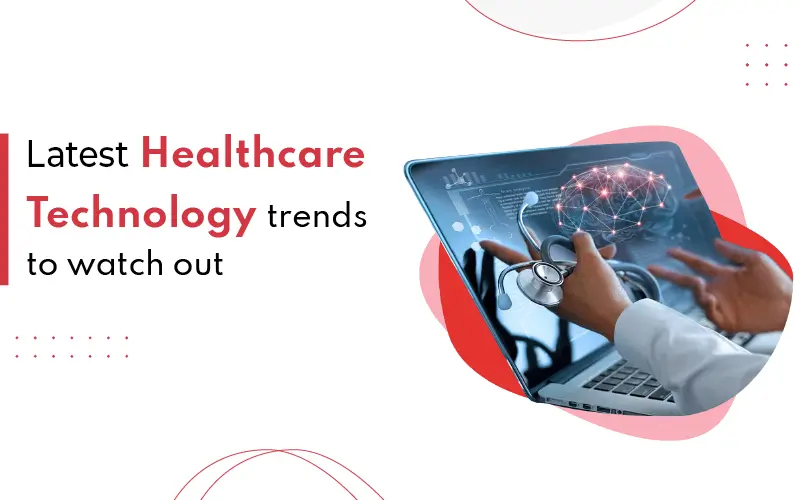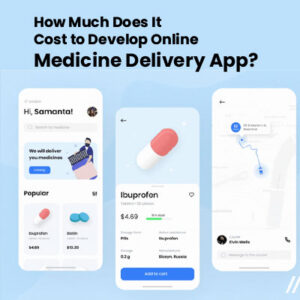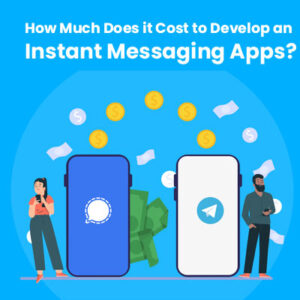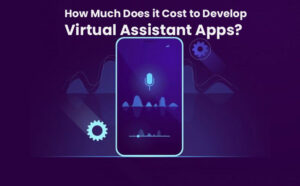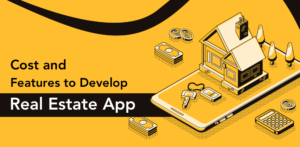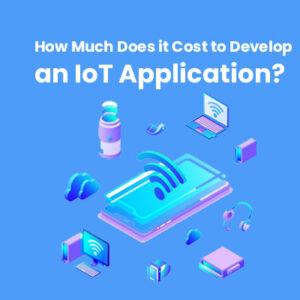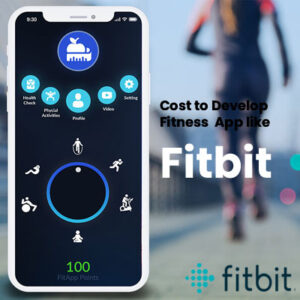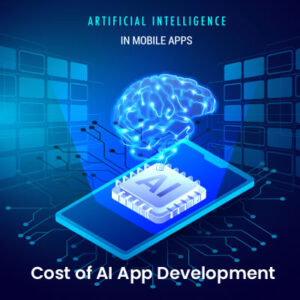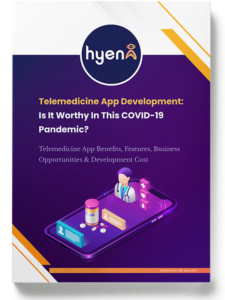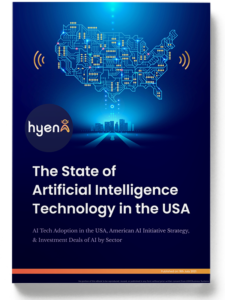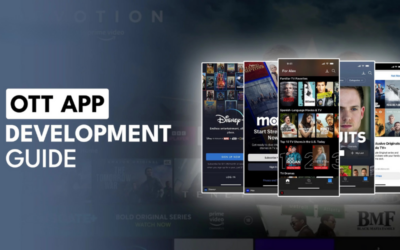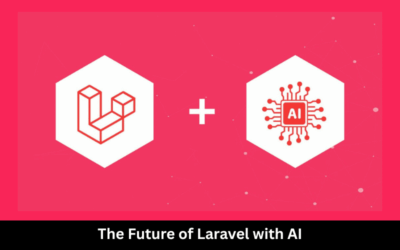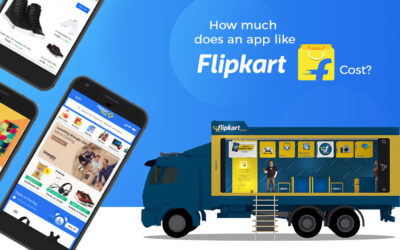Top Healthcare App Development Trends to Follow
Top Healthcare App Development Trends to Follow
Healthcare apps have become a crucial point of digital transformation in the industry. According to market research, the health app market is expected to grow at a CAGR of 11.6% from 2023 to 2030.
The driving force behind this remarkable expansion is the integration of advanced technologies into healthcare apps. Big Data, Artificial Intelligence (AI) & Machine Learning (ML), the Internet of Things (IoT), and Blockchain technologies are revolutionizing the healthcare landscape by providing personalized and efficient medical services.
In this article, we will explore the top healthcare app trends for 2024 that are shaping the future of healthcare delivery. By understanding these emerging trends, healthcare providers and mobile app developers can better prepare themselves to leverage new technologies and stay ahead in an increasingly competitive market.
Top 10 Healthcare App Development Trends
-
Telemedicine and Virtual Care
Telemedicine and virtual care have become essential in modern healthcare, especially post-COVID-19. These services allow patients to consult with doctors remotely via video calls, phone calls, or messaging, eliminating the need for in-person visits.
Video consultations provide face-to-face interactions from home, while remote monitoring uses wearable devices for real-time health tracking. Digital prescriptions speed up the medication process, and automated reminders reduce missed appointments, enhancing overall healthcare efficiency.
This trend saves time and money by avoiding travel, while continuous remote monitoring ensures better management of chronic conditions. Additionally, reducing in-person visits lowers infection risks, benefiting both patients and healthcare workers.
-
AI and Machine Learning in Healthcare Apps
AI and machine learning are transforming healthcare by providing advanced tools for diagnosis, treatment, and patient management. These technologies enable healthcare providers to offer personalized care, reduce human error, and enhance decision-making processes. Additionally, AI-driven insights help in managing chronic diseases more effectively and optimizing treatment protocols, ultimately leading to higher patient satisfaction.
The future of AI and ML in healthcare is promising, with advancements such as AI-driven diagnostics, real-time health monitoring, and personalized medicine on the horizon. Improved AI algorithms will offer more precise health predictions and treatment recommendations. As these technologies continue to evolve, they will play a critical role in revolutionizing healthcare, making it more predictive, preventive, and personalized, thereby significantly improving the overall quality of care.
-
Wearable technology
This technology is significantly enhancing healthcare by enabling continuous health monitoring and data collection. Wearable health devices include fitness trackers, smartwatches, and health monitoring gadgets. They come with features like heart rate monitoring, sleep tracking, and activity logging.
For healthcare providers, wearables offer valuable data that can enhance patient care, improve chronic disease management, and reduce hospital visits by enabling timely interventions. These devices collect and transmit data to connected healthcare apps, allowing for comprehensive health tracking. Advanced wearables also include features for monitoring blood pressure, glucose levels, and oxygen saturation, providing a detailed view of the user’s health status.
Future wearables are expected to offer more sophisticated health monitoring capabilities, including real-time alerts for abnormal readings and AI-driven health insights. As technology advances, wearables will become more integral to personal health management and preventive care, further enhancing their role in healthcare.
-
Blockchain for Secure Health Data
Blockchain is revolutionizing healthcare by providing a secure, transparent way to handle patient data. Its decentralized nature ensures data integrity, prevents unauthorized access, and enhances patient privacy, particularly in maintaining secure health records and ensuring data interoperability.
Secure patient data storage, interoperability, and smart contracts are the key elements of this trend. These features ensure data is tamper-proof, enable seamless data exchange among providers, and automate processes like insurance claims and consent management.
-
Voice-Activated Health Assistants
Voice-activated health assistants are revolutionizing healthcare by providing hands-free interaction with medical information and services. These AI-powered assistants help patients manage medications, schedule appointments, and access health information through simple voice commands.
They enhance patient engagement, offer 24/7 support, and improve accessibility, especially for those with disabilities. Future advancements will include more accurate natural language processing and integration with electronic health records (EHRs), making these assistants even more effective in providing personalized care and improving overall healthcare efficiency.
-
Remote Patient Monitoring (RPM)
Remote patient monitoring uses digital technology to collect health data from patients outside of traditional healthcare settings. This data, which includes vital signs, weight, and glucose levels, is transmitted to healthcare providers for analysis.
RPM improves chronic disease management, reduces hospital readmissions, and enhances patient engagement by allowing continuous monitoring and timely interventions. Future advancements will see more sophisticated devices and integration with AI for predictive analytics, further improving patient outcomes and reducing healthcare costs.
-
Electronic Health Record Systems (EHR)
Electronic Health Record systems digitize patient medical histories, making data easily accessible to healthcare providers. EHRs improve the accuracy and efficiency of patient care by ensuring that all health information is up-to-date and readily available. They enhance coordination among providers, reduce errors, and streamline administrative tasks.
The future of EHRs includes greater interoperability, integration with AI for data analytics, and enhanced security features, ensuring comprehensive and secure patient care management while facilitating advanced data-driven healthcare solutions.
-
Augmented Reality (AR)
Augmented Reality is transforming healthcare by overlaying digital information onto the real world, enhancing both medical training and patient care. In education, AR provides immersive simulations for medical students, improving their understanding of complex procedures.
For patient care, AR aids in visualizing anatomy during surgeries, enhancing precision and outcomes. Future developments will see broader applications such as AR-assisted diagnostics and therapy, improving patient engagement and treatment effectiveness, ultimately revolutionizing how healthcare professionals learn and deliver care.
-
Mental Health Apps
Mental health apps are making mental health care more accessible and stigma-free. These apps offer virtual therapy sessions, guided meditations, mood tracking, and stress management tools, allowing users to manage their mental well-being anytime, anywhere.
They provide anonymity and convenience, encouraging more people to seek help. With AI integration, these apps will offer personalized treatment recommendations and real-time support, further improving mental health outcomes and providing continuous care, making mental health support more effective and widespread.
-
Medication Tracker Apps
Medication tracker apps help patients manage their medication schedules, ensuring adherence to prescribed treatments. These apps offer reminders for taking medications, tracking dosages, and alerting users about potential interactions. They enhance patient compliance, reduce the risk of missed doses, and improve health outcomes.
Future advancements will include integration with wearable devices and health monitoring systems, providing real-time data to healthcare providers, and enabling personalized medication management, thereby improving overall patient care and reducing the likelihood of medication-related complications.
Conclusion
The healthcare app landscape in 2024 will be shaped by innovative technologies like AI, ML, IoT, and blockchain, all aimed at enhancing patient care and improving healthcare delivery. Developing a healthcare app (for Android and iOS) now requires a keen focus on integrating these technologies while ensuring robust security, compliance with regulations, and an exceptional user experience. For this, you need a reliable mobile app development company.
At Hyena, we specialize in creating mobile healthcare apps that meet these demands. Our expertise in AI, IoT, and blockchain ensures that your app is not only cutting-edge but also secure and compliant with all regulations.
Let’s connect with Hyena for your healthcare mobile app development.
